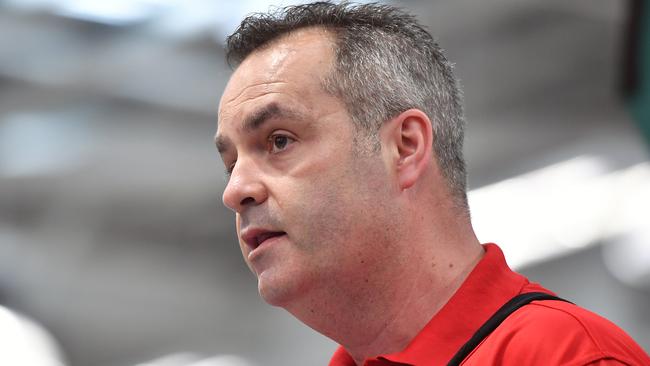Bunnings gains despite DIY delays
Bushfires, smog, smoke and dust storms failed to dent Bunnings’ earnings despite many householders placing DIY projects on hold.

Bunnings boss Michael Schneider said the hardware chain’s sales and earnings momentum remained intact during the first half of fiscal 2020 despite the bushfires, smog, smoke and dust storms that blanketed the east coast, forcing many shoppers to stay indoors and ignore DIY projects.
He added there was occasionally a mix in the popular sales categories on days following a dust storm or smoke, with cleaning products proving hot items.
“The challenge is some of those days you just didn’t want to go outside, so heavy smoke days, particularly the ACT and Sydney, really heavy smoke days, and then the wild weather and people don’t do so much outdoor stuff,” Mr Schneider told The Australian.
“But we did see a pick-up in other categories like garage storage or cleaners.
“Those dust storms in Melbourne — everyone was out cleaning their pools the next day. There are swings and roundabouts.”
Bunnings is the biggest earnings contributor for listed parent company Wesfarmers, generating 60 per cent of group earnings.
Shares in Wesfarmers touched a record high after the Perth-based conglomerate delivered a 5.7 per cent increase in net profit to $1.142bn. Wesfarmers, which also owns Kmart, Target and Officeworks, closed up 2.9 per cent at $46.55.
Revenue for Bunnings increased 5.3 per cent to $7.26bn for the December half, with earnings increasing 3.1 per cent to $961m. Excluding the net contribution from its property operations, earnings increased 4.3 per cent on the previous corresponding period.
Total store sales in the first half rose 5.8 per cent, with store-on-store sales increasing 4.7 per cent.
The rollout of click and collect was completed in Australia during the half with a click and deliver service now available at more than 100 Australian stores. It will continue to be rolled out as the offer is tested and refined.
Bunnings’ new online marketplace, Bunnings MarketLink, was launched in November 2019.
Mr Schneider said despite the volatile weather Bunnings proved its worth as earnings remained strong. “We had really good growth. If you look at our sales numbers, that is a solid growth number, and our comparative sales were ahead of JB Hi-Fi by a little bit.
“So I think what we saw was a really strong value proposition, and you still have Father’s Day, you still have spring, still have Christmas and they are big-selling periods for all retailers, not just Bunnings.”
Speaking about the potential impact of coronavirus on the hardware group’s supply chain from China, he said the retailer sourced about 60 per cent of its products from the region but at this stage it was well stocked and he couldn’t see any impact as yet.
During the half, Bunnings opened eight new stores.
It decided to close three underperforming small-format stores in New Zealand that were in need of significant capital investment.




To join the conversation, please log in. Don't have an account? Register
Join the conversation, you are commenting as Logout